Intro
Understand liver function blood tests, including ALT, AST, and GGT, to diagnose liver damage, disease, and dysfunction, and learn how to interpret results for optimal liver health and wellness management.
The liver is a vital organ that plays a crucial role in maintaining our overall health. It performs a wide range of functions, including detoxification, protein synthesis, and production of biochemicals necessary for digestion. Liver function blood tests are a crucial diagnostic tool used to assess the health of the liver and detect any potential problems. These tests measure various enzymes, proteins, and other substances in the blood that are produced or cleared by the liver. In this article, we will delve into the world of liver function blood tests, exploring their importance, types, and what the results mean.
Liver function blood tests are essential for diagnosing and monitoring liver diseases, such as hepatitis, cirrhosis, and liver cancer. They can also help identify liver damage caused by medications, toxins, or other factors. The tests can detect abnormalities in liver function, even before symptoms appear, allowing for early intervention and treatment. Moreover, liver function blood tests are often used to monitor the effectiveness of treatment and detect any potential complications.
The liver is a complex organ, and liver function blood tests can provide valuable insights into its health. The tests can measure various aspects of liver function, including enzyme levels, protein production, and bilirubin levels. Enzymes, such as alanine transaminase (ALT) and aspartate transaminase (AST), are produced by the liver and released into the blood when liver cells are damaged. Protein production, such as albumin and globulin, can indicate liver function and detect any potential problems. Bilirubin, a yellow pigment produced during the breakdown of red blood cells, can accumulate in the blood if the liver is not functioning properly.
Liver Function Tests: An Overview

Liver function tests are a group of tests used to assess liver health and detect any potential problems. The tests can be divided into several categories, including liver enzyme tests, liver protein tests, and bilirubin tests. Liver enzyme tests, such as ALT and AST, measure the levels of enzymes produced by the liver. Liver protein tests, such as albumin and globulin, measure the levels of proteins produced by the liver. Bilirubin tests measure the levels of bilirubin in the blood.
Types of Liver Function Tests
Liver function tests can be categorized into several types, including: * Liver enzyme tests: ALT, AST, alkaline phosphatase (ALP), and gamma-glutamyl transferase (GGT) * Liver protein tests: albumin, globulin, and total protein * Bilirubin tests: total bilirubin, direct bilirubin, and indirect bilirubin * Other tests: prothrombin time (PT), international normalized ratio (INR), and liver panelInterpreting Liver Function Test Results
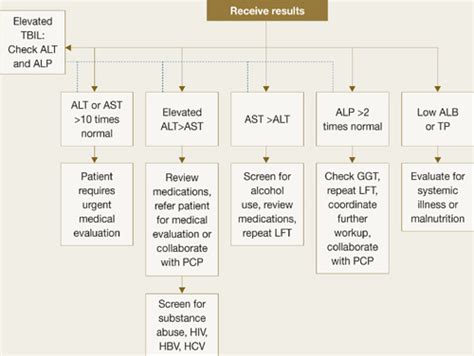
Interpreting liver function test results can be complex and requires a thorough understanding of the tests and their implications. The results can indicate liver damage, liver disease, or other conditions that affect liver function. Elevated liver enzyme levels can indicate liver damage or inflammation, while abnormal protein levels can indicate liver dysfunction or disease. Bilirubin levels can indicate liver function and detect any potential problems.
Understanding Liver Enzyme Levels
Liver enzyme levels can provide valuable insights into liver health. Elevated ALT and AST levels can indicate liver damage or inflammation, while elevated ALP and GGT levels can indicate bile duct obstruction or liver disease. The normal ranges for liver enzymes vary depending on the laboratory and the individual's age, sex, and other factors.Liver Disease Diagnosis and Monitoring
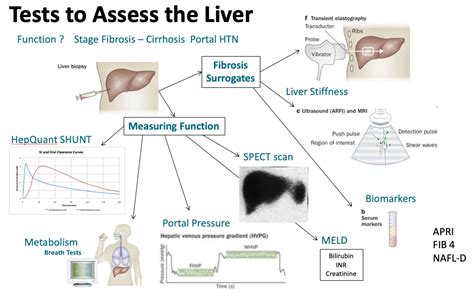
Liver function blood tests play a crucial role in diagnosing and monitoring liver diseases, such as hepatitis, cirrhosis, and liver cancer. The tests can detect abnormalities in liver function, even before symptoms appear, allowing for early intervention and treatment. Moreover, liver function blood tests can monitor the effectiveness of treatment and detect any potential complications.
Liver Disease Treatment and Management
Liver disease treatment and management depend on the underlying cause and severity of the disease. Treatment options may include medications, lifestyle modifications, and surgery. Liver function blood tests can monitor the effectiveness of treatment and detect any potential complications.Liver Function and Overall Health
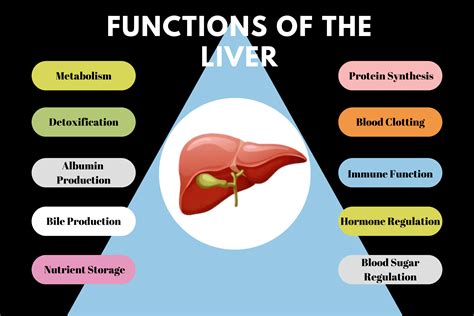
Liver function is closely linked to overall health. The liver plays a vital role in maintaining our overall health, and liver dysfunction can have significant implications for our well-being. Liver function blood tests can provide valuable insights into liver health and detect any potential problems.
Maintaining Liver Health
Maintaining liver health is essential for overall well-being. A healthy diet, regular exercise, and avoiding toxins and medications that can harm the liver can help maintain liver health. Additionally, regular liver function blood tests can detect any potential problems and allow for early intervention and treatment.Common Liver Function Test Abnormalities
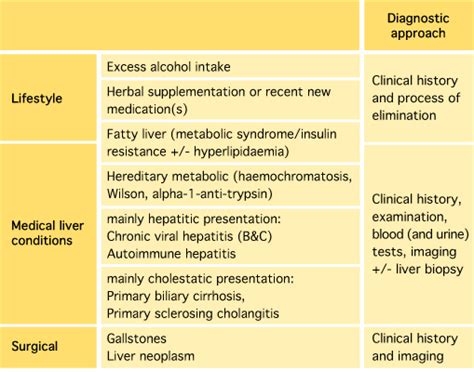
Common liver function test abnormalities can indicate liver damage, liver disease, or other conditions that affect liver function. Elevated liver enzyme levels, abnormal protein levels, and bilirubin levels can indicate liver dysfunction or disease.
Causes of Abnormal Liver Function Test Results
Abnormal liver function test results can be caused by a variety of factors, including: * Liver diseases, such as hepatitis and cirrhosis * Medications and toxins that can harm the liver * Bile duct obstruction * Liver cancer * Other conditions that affect liver functionLiver Function Blood Tests in Clinical Practice
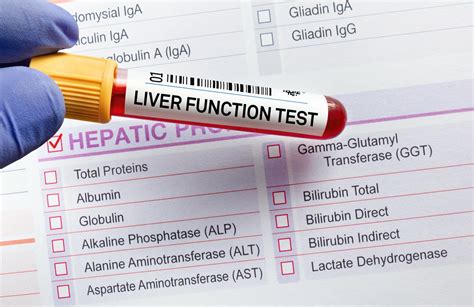
Liver function blood tests are widely used in clinical practice to diagnose and monitor liver diseases. The tests can detect abnormalities in liver function, even before symptoms appear, allowing for early intervention and treatment.
Limitations and Challenges of Liver Function Blood Tests
Liver function blood tests have several limitations and challenges, including: * False-positive and false-negative results * Variability in test results * Limited sensitivity and specificity * Interference from other factors, such as medications and toxinsFuture Directions in Liver Function Testing

Future directions in liver function testing include the development of new and more sensitive tests, such as biomarkers and imaging tests. These tests can provide more accurate and reliable results, allowing for earlier diagnosis and treatment of liver diseases.
Emerging Trends in Liver Function Testing
Emerging trends in liver function testing include: * Personalized medicine and targeted therapy * Non-invasive testing and imaging * Biomarkers and genetic testing * Artificial intelligence and machine learningWhat is the purpose of liver function blood tests?
+Liver function blood tests are used to assess liver health and detect any potential problems. The tests measure various enzymes, proteins, and other substances in the blood that are produced or cleared by the liver.
What do abnormal liver function test results indicate?
+Abnormal liver function test results can indicate liver damage, liver disease, or other conditions that affect liver function. Elevated liver enzyme levels, abnormal protein levels, and bilirubin levels can indicate liver dysfunction or disease.
How often should I get liver function blood tests?
+The frequency of liver function blood tests depends on individual factors, such as age, medical history, and risk factors. It is essential to consult with a healthcare professional to determine the best testing schedule for your specific needs.
Can liver function blood tests detect liver cancer?
+Liver function blood tests can detect abnormalities in liver function, which may indicate liver cancer. However, the tests are not specific for liver cancer, and further testing, such as imaging and biopsy, may be necessary to confirm the diagnosis.
What can I do to maintain liver health?
+Maintaining liver health is essential for overall well-being. A healthy diet, regular exercise, and avoiding toxins and medications that can harm the liver can help maintain liver health. Additionally, regular liver function blood tests can detect any potential problems and allow for early intervention and treatment.
In conclusion, liver function blood tests are a crucial diagnostic tool used to assess liver health and detect any potential problems. The tests can provide valuable insights into liver function, and abnormal results can indicate liver damage, liver disease, or other conditions that affect liver function. By understanding the importance of liver function blood tests and maintaining liver health, individuals can take proactive steps to protect their liver and overall well-being. We encourage readers to share their thoughts and experiences with liver function blood tests in the comments below and to consult with a healthcare professional for personalized advice on maintaining liver health.
